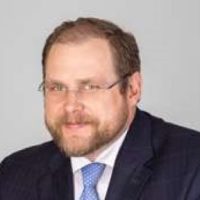Attorney Brendan A. Sweeney Of Sweeney Law, P.A. Featured In The December 2023 Edition Of The Broward County Bar Barrister – CIVIL CONSPIRACY CLAIMS IN FLORIDA

The late world-renowned Dr. Leonard A. Cole, dentist, political scientist, investigative journalist, and terrorism medicine expert, poignantly stated:
“You are not responsible for what your friends do, but you will be judged by the company you keep.”
While this may be a generally true statement and something you probably heard from your parents. There are exceptions pursuant to the laws down here in sunny Florida concerning civil conspiracies. This article is by no means meant to be an exhaustive analysis, but instead, a brief overview and introduction to the basics of Florida civil conspiracy claims.
In Florida, a civil conspiracy requires: (a) an agreement between two or more parties; (b) to do an unlawful act or to do a lawful act by unlawful means; (c) the doing of some overt act in pursuance of the conspiracy; and (d) damage to plaintiff as a result of the acts done under the conspiracy. Eagletech Commc’ns, Inc. v. Bryn Mawr Inv. Grp., Inc., 79 So. 3d 855, 863 (Fla. 4th DCA 2012) (quoting Raimi v. Furlong, 702 So. 2d 1273, 1284 (Fla. 3d DCA 1997). Civil conspiracy has not been codified under Florida Statutes, but rather civil conspiracy claims derive from Florida’s precedential decisions.
A civil conspiracy requires an agreement and meeting of the minds of two or more parties. Since a corporation is an entity which can only act through its agents, officers, and employees, a corporation cannot conspire with its own agents unless the agent has a personal stake in the activities that are separate and distinct from the corporation’s interest. Cedar Hills Props. Corp. v. E. Fed. Corp., 575 So. 2d 673, 676 (Fla. 1st DCA 1991). It must be established that the agent acted in their personal interest, wholly and separately from the corporation. The personal interest requires more than some incidental personal benefit, it applies only where corporate employees are shown to have been motivated solely by personal bias. HRCC, Ltd., 302 F. Supp. 3d at 1325 (quoting Hartman v. Bd. of Trs. of Cmty. Coll. Dist. No. 508, 4 F.3d 465, 470 (7th Cir. 1993)); see also Mancinelli v. Davis, 217 So. 3d 1034, 1037 (Fla. 4th DCA 2017) (“[A] ‘personal stake’ must be more than just personal animosity on the part of the agent. Moreover, the benefit to the agent must be more than ‘incidental’ to the benefit to the principal.”)
One of the crucial components in any civil conspiracy claim is that a separate actionable underlying tort or wrong is required. Florida Fern Growers Ass’n, Inc.; Wright v. Yurko, 446 So.2d 1162 (Fla. 5th DCA 1984). This is also one of the main distinctions between a criminal conspiracy and a civil conspiracy. In a criminal conspiracy charge, the essence of the crime is the conspiracy itself. While in a claim for civil conspiracy, the substance is the civil wrong performed pursuant to the conspiracy that resulted in damage to the plaintiff. Fish v. Adams, 401 So. 2d 843, 845 (Fla. 5th DCA 1981). A well-recognized exception to the wrongful act requirement is if a plaintiff can show that mere force of numbers acting in unison may constitute an actionable wrong. Churruca v. Miami Jai-Alai, Inc., 353 So. 2d 547, 550 (Fla. 1977). If the plaintiff can demonstrate a peculiar power of coercion possessed by the conspirators, by virtue of their combination, a power that an individual acting alone would not possess, then such an action may create an independent tort of conspiracy Am. Diversified Ins. v. Union Fid. Ins., 439 So. 2d 904, 906 (Fla. 2d DCA 1983). In Churruca jai lai players attempted an unsuccessful strike against their employers. Thereafter the players sought reemployment, but the employers as a group colluded together and refused to rehire them. The Florida Supreme Court explicitly ruled that if the employers acted maliciously to deprive the employees of their livelihood, then the employers could be guilty of the independent tort of civil conspiracy.
There are several strategic reasons to consider including a claim for civil conspiracy if the underlying facts and evidence support it. Florida law is abundantly clear in that each act pursuance of the conspiracy, by one of several conspirators, is an act for which each is jointly and severally liable. Segal vs. International, Inc., 688 So. 2d 397, 400 (Fla. 4th DCA 1997). Additionally, pursuant to section 90.803(18)(e), Fla. Stat., a hearsay exception exists allowing hearsay statements made by coconspirators during the course and in furtherance of the conspiracy to be introduced into evidence. Lastly, from a discovery standpoint, it is usually easier to obtain all of the relevant information concerning the conspiracy. If any one defendant is stonewalling or spoliating discovery it is very easily ascertained due to being able to conduct discovery on all of the conspirators.
The case law concerning civil conspiracy in Florida is exhaustive and factually intensive. In Florida if you are part of a civil conspiracy you will not only be juhttps://www.browardbar.org/3d-flip-book/dec-2023dged by the company that you keep, but you will also be responsible for what your coconspirators do.
See original article here – Pages 14-15

